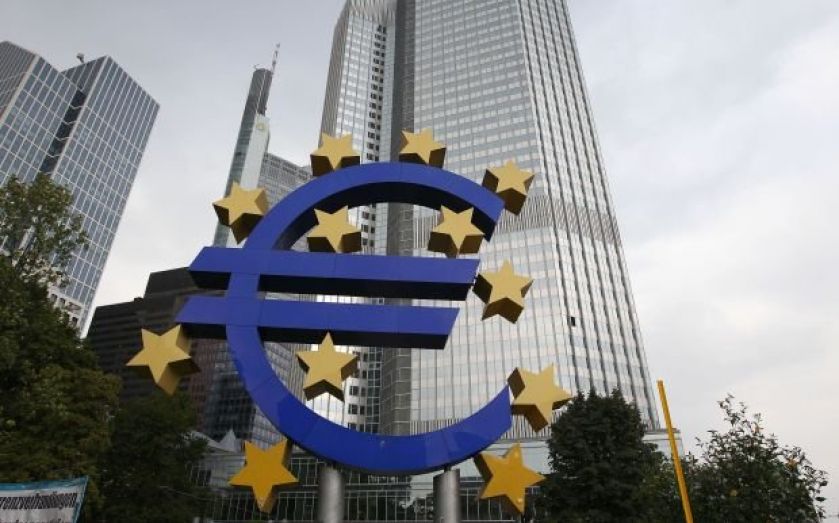All eyes on Mario Draghi as Eurozone inflation slides to a five-year low 0.3 per cent for November

Eurozone inflation slumped to a five-year low in October, turning up the heat on the European Central Bank to act in order to avoid a damaging deflationary spiral.
The flash figure of 0.3 per cent for November was down from 0.4 per cent in October, Eurostat said. This was in line with economists' estimates according to a survey by Bloomberg.
Energy is likely to be the biggest laggard, with the annual inflation rate expected to be -2.5 per cent in November. Energy prices have tumbled recently amid a global glut in oil supply and other commodities.
Inflation has been slowing since mid-2011 and remains well below the European Central Bank's target of just under two per cent. The stubbornly low inflation rate, coupled with weak growth, has heaped pressure on Frankfurt to enact more stimulus measures.
Stimulus measures
Last week, European Central Bank governor Mario Draghi said that the bank would "do what we must to raise inflation and inflation expectations as fast as possible." The euro tumbled after the speech, as investors positioned themselves for another possible dose of stimulus measures.
There are fears that inflation could fall below zero per cent next year, putting the eurozone into deflationary territory. If this happens it's likely that businesses and consumers will delay purchases as they believe prices will fall further, adding to the single currency zone's economic quagmire.
Speculation is rife that the bank could start buying government bonds as early as next year, meaning it would be embarking on a policy of quantitative easing. Presently, it's using unconventional measures such as loans to banks and buying up private debt securities.
Eurozone bond yields have plunged to record lows, amid rumours that the European Central Bank could soon become a buyer.
Unemployment
The eurozone unemployment rate stuck at 11.5 per cent for the third month running in October, Eurostat said. However, the number of jobless people actually rose by 60,000 to 18.39 million in October.
Until the wider economy picks up, it's unlikely to generate enough momentum for any significant upward movement in the unemployment rate.